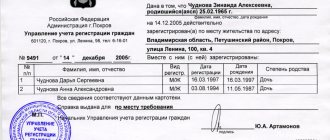Free legal consultation: +7 (499) 938-42-95 Moscow and region. +7 (812) 425-13-93 St. Petersburg and region. 8 (800) 333-42-87 other regions
One of the main rules of living in an apartment building is to use the residential premises for their intended purpose, without violating sanitary standards and the interests of other citizens.
Often the topic of conflicts becomes pets , whose residence in an apartment does not always comply with legal requirements.
Dear readers! Our articles talk about typical ways to resolve legal issues, but each case is unique. If you want to find out how to solve your particular problem, please contact the online consultant form on the right or call the numbers below. It's fast and free!
What laws govern this issue?
It should be noted that issues regarding the residence of animals and their proper maintenance are not sufficiently regulated in Russian legislation, which often leads to conflicts and even litigation.
The main legislative acts with the help of which the legal regulation of relations regarding the keeping of pets is carried out:
- Decree of the Government of the Russian Federation of January 21, 2006 No. 25 “On approval of the Rules for the use of residential premises”;
- Federal Law of March 30, 1999 N 52-FZ “On the sanitary and epidemiological welfare of the population”;
- Law of the Russian Federation of May 14, 1993 N 4979-1 “On Veterinary Medicine”.
At the moment, a bill has been developed (but not yet approved) that is dedicated to keeping pets - the “Law on the Responsible Treatment of Animals.”
Some separate provisions regulating the rules for the use of residential premises and the residence of animals in them are contained in the Housing, Civil and Administrative Legislation.
Local authorities of constituent entities of the Russian Federation have the right to approve their legislative acts regarding the rules for living pets in apartments.
These may be rules, regulations or requirements adopted by a separate executive branch and not inconsistent with federal law.
If you want to know how to deal with noisy neighbors, we advise you to read the article.
What law regulates the keeping of dogs in an apartment?
One of the main documents is the Draft Federal Law “On Keeping Dogs in the Russian Federation”. This regulatory legal act regulates legal relations in the field of keeping pets on Russian territory in order to ensure public order, as well as ensuring the safety of people from the adverse physical, sanitary, hygienic, psychological and other effects of dogs.
This bill on keeping dogs consists of 5 chapters and 33 articles:
- Chapter 1 (Articles 1-4) . Basic provisions of the law. Defines the scope of this law, its basic concepts, rules for keeping an animal in an apartment, as well as the rights and responsibilities of national government and regional government services;
- Chapter 2 (vv. 5-13 ). State supervision. The relevant section establishes: the basic conditions for the acquisition of animals;
- features of purchasing dogs of potentially aggressive breeds;
- registration rules;
- features of registration of dogs of potentially aggressive and dangerous breeds;
- license for the purchase and sale, keeping and breeding of pets;
- termination of license;
- state fee for registering a pet and benefits for its payment;
- funds that the owner receives from paying state duty;
- payment collection procedure.
Particular attention should be paid to the paragraph on the rules for keeping pets in an apartment or in a private house.
Rules for keeping dogs in a private home
The rules and requirements for keeping dogs in a private or apartment building differ from each other. The main difference is that pet owners living in an apartment must follow the rules established in this Federal Law, otherwise they will incur administrative penalties. There is no separate legislative act on the rules for keeping animals in a private home in the Russian Federation. Therefore, the rights of dog owners who keep them in country houses are not so limited.
Basic principles on how to legally keep dogs in an apartment:
- the four-legged friend must live strictly on the territory of the apartment; using common areas (entrance, corridor, landing) for these purposes is strictly prohibited;
- the owner must ensure that his pet does not pollute common areas, including nearby courtyards;
- Noisy behavior of a pet is not allowed from 21:00-06:00;
- The legislation of the Russian Federation prohibits walking animals in crowded places;
- You can walk pets only on a leash, wearing a muzzle and with a tag on which information about its owner is indicated;
- Children under 14 years of age do not have the right to walk a pet unaccompanied by an adult.
Check out the Silence Law
When living in an apartment with a dog, you must be extremely attentive to the requests and claims of your neighbors, even if at first glance they seem unreasonable to you. Often, conflicts with neighbors over keeping dogs in an apartment lead to litigation.
A private house and the surrounding area are the private property of the owner, so in this case, when dogs live in country houses, the opinion of the neighbors is not so important. The only generally accepted rule is that the dog should not roam freely throughout the entire area, as in this case, he may find a way to go beyond the fence.
What breeds should not be kept in an apartment?
The law on keeping dogs does not establish a clear list of breeds that are prohibited from being kept in an apartment building. However, the document provides a list of breeds that are potentially dangerous and aggressive. This may be due to their hunting instincts, as any situation can provoke an animal that can harm people.
Breeds of aggressive and dangerous dogs are divided into the following types:
- fighting dogs , these include: pit bull terrier; Staffordshire Teller; mastif; alabai; bulldog; Caucasian Shepherd Dogs. These breeds are born to be fighters, even if the owner devotes a lot of time to training and raising them, there is no guarantee that they will never attack people;
- hunting , these include: huskies, griffins, retrievers, Azawakhs and Blandhounds. The corresponding breeds were bred specifically for hunting, which is responsible for their specific behavior and special content. They need maximum physical activity, which can become a problem when keeping them in an apartment;
- watchdogs , these include: Rottweilers; Dobermans; German Shepherds; Asian Shepherds; Bullmastiffs. The main purpose of breeding this type of dog is to perform service. Their animal instincts are heightened; in an apartment, such a dog may react inadequately to the behavior of family members, so keeping them in an apartment building is not recommended;
- shepherds, these include: collies, Central Asian and Australian shepherds, bobtails, boxers and mountain dogs. These breeds require long walking, regular training, as well as proper and plentiful nutrition. This category can react aggressively towards neighbors, family members and guests.
Important! The Russian Federation has not yet developed a separate regulatory act prohibiting the keeping of dogs of certain breeds. However, in order to avoid conflict situations, it is recommended to approach the choice of a pet extremely rationally and responsibly.
What kind of pets are considered domestic?
There is no clear concept of “pets” in the legislation.
What kind of pets can you have in your apartment? A citizen can have either a familiar cat or dog or an exotic animal - a tiger, an alligator, a python.
There are no direct prohibitions regarding the possibility of keeping such animals in the law, the main thing is that its residence in the apartment does not contradict the rules of the hostel.
When can an animal be considered a pet?
- It must be registered (a veterinary passport is issued for some animals);
- The animal must be vaccinated against rabies;
- (treatment against fleas, lichen and other dangerous diseases) must be applied to the pet
If these requirements are not met, the animal will not be considered domestic, and certain liability will be applied to its owner..
Animal shelters
The law has an impressive section that concerns animal shelters. Let's talk about the main points:
- Shelters are formed for the purpose of keeping pets, including animals abandoned by their owners.
- An animal shelter must be established in a building, structure, or structure specially designed for this purpose.
- Shelters can be public or private.
- The owner of a private shelter must be an individual entrepreneur or a legal entity.
- Shelters are allowed to place animals while the owner is away for a period of time (only by mutual consent).
- The owner of the shelter is responsible for keeping animals in the shelter.
Rules for keeping cats and dogs
The main requirements noted in the legislation that relate to keeping pets:
- The animal must live in the owner’s apartment ; common areas (entrance, corridor, staircase) cannot be used for these purposes.
- It is prohibited to treat an animal with cruelty or cause injury or other harm to it. The owner must treat the pet properly, provide care for it, feed and care for it.
- If property damage is caused to another person due to the fault of an animal, then the owner will compensate for it. In addition to paying for the damage, an administrative fine will also be applied to it.
- The owner of the animal must ensure that his pet does not attack or harm a person or other animal. Otherwise, he will also face liability, regardless of whether the animal attacked itself or was provoked. It is also prohibited to threaten the pet and set it on people.
- Your pet's behavior in public places should be carefully monitored . It is forbidden for a dog to be in transport, in stores, on playgrounds and sports grounds without a leash and muzzle. The use of such places by animals as a toilet is also prohibited. If the latter happens, the owner must take measures to eliminate the consequences of such an event.
- If the owner has reason to believe that his pet is sick and may be dangerous to others, he must immediately take measures to isolate the animal and take it to a veterinarian.
- It is prohibited to organize shelters and nurseries for animals in residential premises , especially if this violates sanitary and epidemiological rules and requirements.
In the event of the death of an animal, the owner must also take the necessary measures and ensure its proper burial (or other acceptable type of disposal).
If these rules are not followed, a citizen may be subject to certain liability - from administrative (in most cases this is a fine) to criminal.
Pet Law
The keeping of animals is regulated by the following regulations and federal laws:
- Decree of the Government of the Russian Federation No. 25 on the rules for the use of cores. premises (R. I. Part 6, R. II, Part 10, paragraphs “b” and “d”) dated January 21, 2006
- Temporary rules for keeping dogs and cats in Moscow (Resolution No. 900 - PP) of October 7, 2008
- Law of the Russian Federation No. 4979 on veterinary medicine (dated May 14, 1996).
Finally, a new bill on pets has been adopted, which in a few months will partially enter into force in 2019. The final implementation of the law will take place in 2021.
Rules for keeping pets in apartment buildings
First of all, let’s figure out which animals are allowed to be kept in the house as pets. Old laws did not clearly define what a pet was. It could be understood as either a dog or a domesticated tiger or python. Most often, cats and dogs are pets, so the rules developed mainly concern them.
Where are dogs and cats allowed?
An animal can only be kept in a residential building where its owner and his family members live. It is prohibited to use the common areas of an apartment building (corridors, loggias or balconies, landings, kitchen areas of communal apartments, etc.) for the permanent presence of a dog or cat. Even if it is extremely peaceful.
In a communal apartment, where different families live in rooms, you can have a pet only if your neighbors do not have allergies.
Mandatory registration and vaccination
The dog or cat must be registered with a veterinary institution and re-registered annually. Rabies vaccination begins when the animal is three months old and is repeated every year throughout its life. Notes on vaccinations and deworming are included in the pet’s certificate, without which it is impossible to travel abroad with the animal.
Is it possible to be with a dog in public places?
- You can enter public transport with a dog, but only if it is muzzled or on a leash. You can only travel on the subway with small animals in a carrier bag.
- Accommodation in a hotel, sanatorium, rest home and other places of temporary residence, entry with an animal into a store and other public places is possible only with the permission of the administration of these institutions and only if the dog is wearing a muzzle and is on a short leash.
- When crossing the street, the animal must also be on a short leash.
- You can leave your pet near a store and other public places only on a leash and for a short time.
A dog unaccompanied by its owner and walking freely in a public place is subject to capture.
Compliance with sanitary and hygienic standards and rules of cohabitation
The owner of the animal is responsible for the sanitary condition of his premises and common areas. If there are 20 cats in an apartment, and the owner does not look after them and does not clean the litter boxes, the neighbors may be annoyed by the unpleasant odor emanating from the premises.
- Some cities allow a maximum of two animals in one apartment.
- It is legally prohibited to maintain animal nurseries in residential premises of apartment buildings.
- The owner is obliged to clean up after the animal if products of its physiology remain in public areas (entrances, playgrounds, elevators, in the yard, on a children's or sports ground, etc.).
- Aggressive behavior of a dog in the house, loud barking from 11 pm to 7 am is unacceptable.
Other types of owner responsibilities
The dog owner is responsible:
- For causing harm to a person, another animal, or someone else's property. In addition to paying a fine, the owner is obliged to compensate the victims for damages. And if the dog causes physical injuries and serious harm to health, then the owner is already subject to criminal liability.
- For cruelty to an animal: it is prohibited to beat it, torture it, or deprive it of life, food or drink.
- Keeping a domestic animal for the purpose of obtaining its fur or meat for food.
- Raising or purchasing fighting breed dogs to participate in fights.
Animal care
- Pets should not be left unattended, without food or drink, or locked in a room or car for a long time.
- Dogs need to be walked at least twice a day, and cats need to change litter trays daily.
- If an animal is suspected of having an illness, the owner must visit a veterinarian with his pet.
- The owner must also engage in the prevention of diseases in his charges: timely vaccinations against dangerous canine and feline diseases;
- Give your pets anthelmintic medications every three months;
- use parasite repellents (fleas, ticks, etc.).
Dog walking rules
- It is prohibited to walk dogs on the territory of medical and educational institutions (hospitals, schools, kindergartens, etc.).
- It is recommended to attach a tag to the pet's collar indicating the owner's home address or telephone number (if it is not microchipped).
- Walking a dog by a drunk person or a child under 14 years of age is prohibited.
Problems with keeping animals in an apartment
In most cases, an apartment is not the best place to keep animals..
For small pets (cats or small dogs) this is acceptable, but large animals certainly cannot be provided with everything necessary for normal living.
This is especially true for keeping large breeds of dogs - for example, fighting dogs. Such animals need a lot of space and the ability to move freely, which is difficult to achieve when living in an apartment.
A small space and lack of proper walks have a negative impact on the dog’s psychological state, which can lead to the most unexpected consequences..
Dogs can also disturb neighbors with their barking - this is a violation of the rules of maintaining silence, so the owner must eliminate this factor as much as possible.
Read the article on what to do if you are flooded by your upstairs neighbors here.
As for cats, their maintenance is much simpler and more suitable for an apartment, but only on condition that the owner monitors them and keeps the room clean.
The main negative consequence of having cats (especially if there are a lot of them and they are not litter box trained) is a very unpleasant smell that spreads not only in the apartment, but also outside it. This situation is a direct violation of sanitary standards and may become the basis for neighbors to file a lawsuit.
What kind of pets can you have in your apartment?
Modern legislation does not indicate a list of species classified as domestic animals.
The new project is intended to fill this gap , but today it has not yet been adopted .
This makes various absurd situations .
For example, when in city apartments, along with the usual cats and dogs, tigers, lions, alligators, large monkeys and snakes of varying degrees of poisonousness are kept.
There are no direct prohibitions on their presence, with the exception of the norm , which indicates that the presence of a pet should not violate the rules of the hostel.
In conflict situations, the final word remains with the court .
Regardless of the type of animal, the mandatory conditions include:
- State registration , in some cases (for transportation within Russia and across the border) a veterinary certificate ,
- Rabies vaccination
- Mandatory prevention , including treatment for fleas, lichen, rashes, and other diseases.
A pet can be considered a pet only if all of the above requirements are met. Otherwise, its owner may incur administrative liability.
Where can you complain if your neighbors dog is constantly barking?
When keeping an animal in an apartment that causes some inconvenience to neighbors, you should first of all make a request directly to the owner. It is likely that he does not even suspect that in his absence the dog is causing problems for the residents. If peace negotiations did not bring the expected result and the owner ignored the request, then you should start writing a complaint.
The claim can be sent to the district police officer, who must conduct an explanatory conversation; if the request is ignored and repeated complaints are received, the district police officer has the right to issue a fine. If the district police officer refuses to accept the application, neighbors can directly appeal to Rospotrebnadzor or the regional administrative court.
In 2020 (more precisely, from December 28, 2018), the new Federal Law “On the Responsible Treatment of Animals” came into force. He established a number of rules for keeping and walking dogs, and also introduced liability for owners for violating them. We’ll talk more about it, as well as other current regulations governing the treatment of pets, below.







